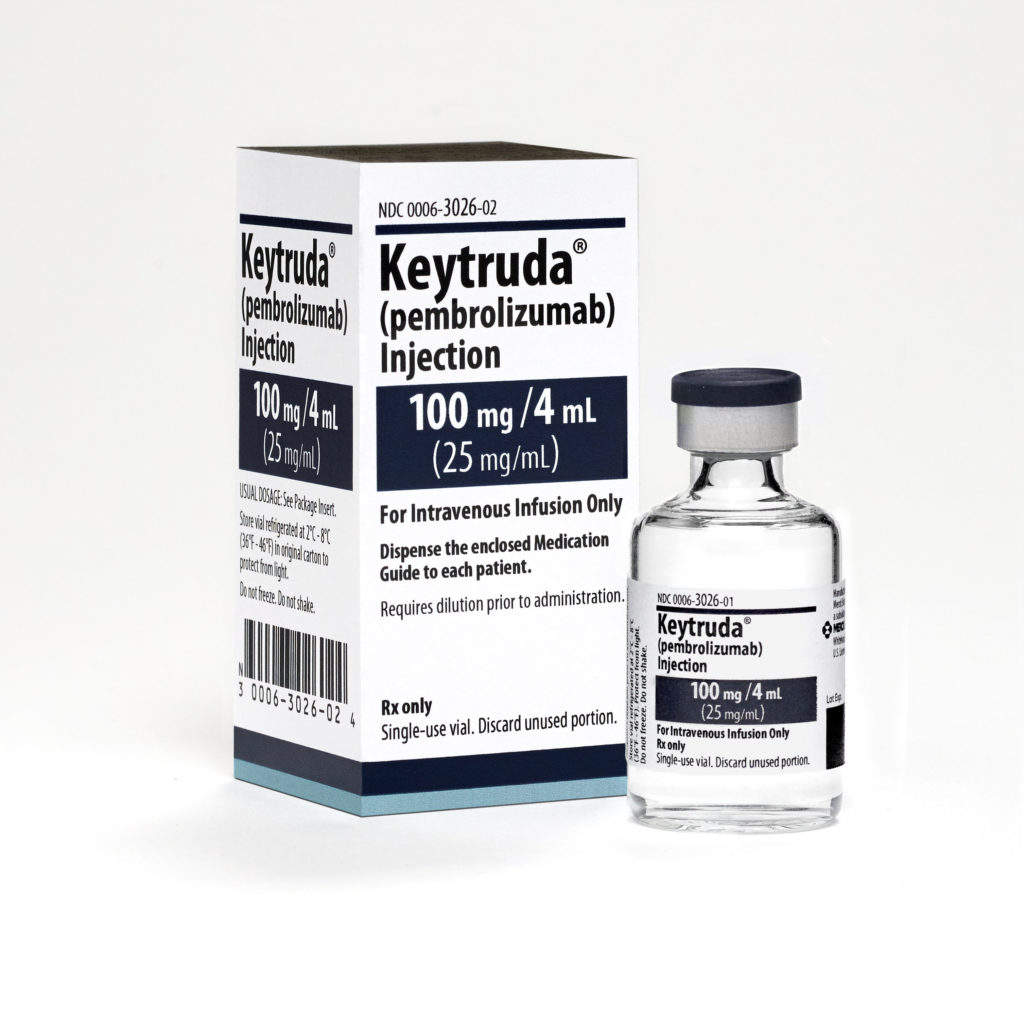Merck said that a committee of the US Food and Drug Administration (FDA) has recommended approval of Keytruda for the treatment of certain patients who are highly prone to non-muscle invasive bladder cancer (NMIBC).

Image: Merck’s anti-PD-1 therapy Keytruda. (Credit: Merck Sharp & Dohme Corp.)
Subscribe to our email newsletter
The FDA’s Oncologic Drugs Advisory Committee (ODAC) voted 9-4 in favour of approving Keytruda for the new indication.
The anti-PD-1 therapy has already been approved in the US and other countries for various cancer-related indications.
Recently, it secured priority review designation from the FDA for NMIBC. The ODAC’s discussions were based on the supplemental Biologics License Application (sBLA) filed by Merck seeking the drug’s approval for the same indication.
The company under the sBLA is seeking approval of Keytruda monotherapy for the treatment of patients having Bacillus Calmette-Guerin (BCG)-unresponsive, high-risk, NMIBC with carcinoma in-situ (CIS) with or without papillary tumours who are not eligible for or have decided not to have cystectomy (removal of bladder).
Merck Research Laboratories senior vice president and global clinical development, head and chief medical officer Roy Baynes said: “The positive vote from today’s ODAC meeting supports the potential for Keytruda in certain patients with high-risk, non-muscle invasive bladder cancer, who currently have limited non-surgical treatment options approved by the FDA.
“We are encouraged by today’s productive discussion and look forward to working with the FDA as they continue their review of our supplemental application for Keytruda in this patient population.”
Merck’s sBLA for the NMIBC indication was filed based on the findings of the phase 2 KEYNOTE-057 trial, which were first disclosed at the European Society for Medical Oncology 2018 Congress.
The ODAC’s role is to give independent, expert advice, and recommendations to the FDA on marketed and investigational drugs for use in the treatment of cancer. However, the FDA is not bound by the ODAC’s guidance but does consider its advice before taking a decision.
Merck expects a Prescription Drug User Fee Act (PDUFA), or target action date, for Keytruda in the NMIBC indication in January 2020.
The humanised monoclonal antibody has been designed to boost the ability of the body’s immune system to help identify and fight tumour cells. It works by blocking the interaction between PD-1 and its ligands, PD-L1 and PD-L2 to help trigger T lymphocytes that may impact both tumour cells and healthy cells.
 Advertise With UsAdvertise on our extensive network of industry websites and newsletters.
Advertise With UsAdvertise on our extensive network of industry websites and newsletters.
 Get the PBR newsletterSign up to our free email to get all the latest PBR
news.
Get the PBR newsletterSign up to our free email to get all the latest PBR
news.

